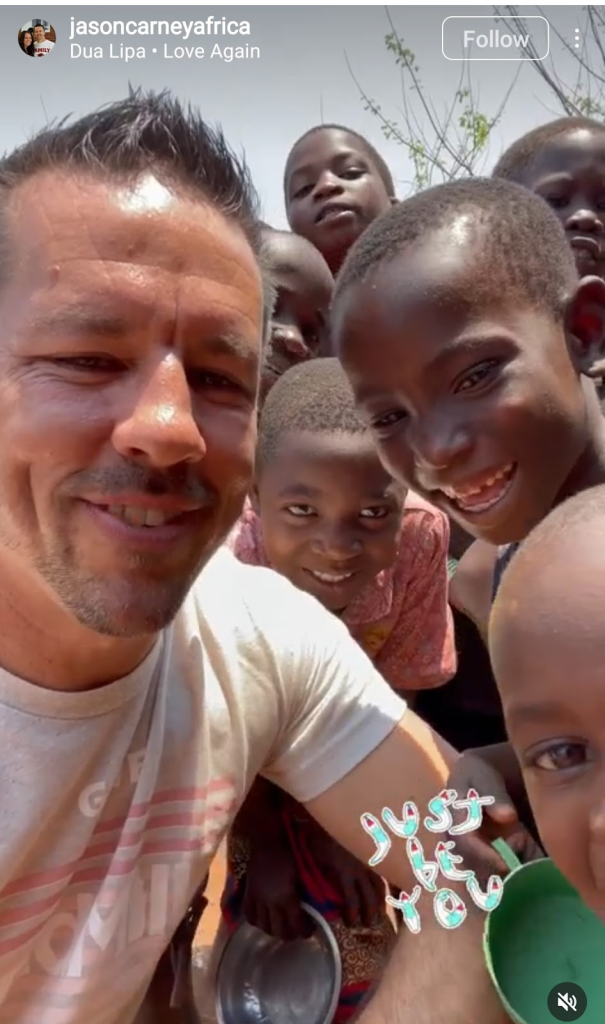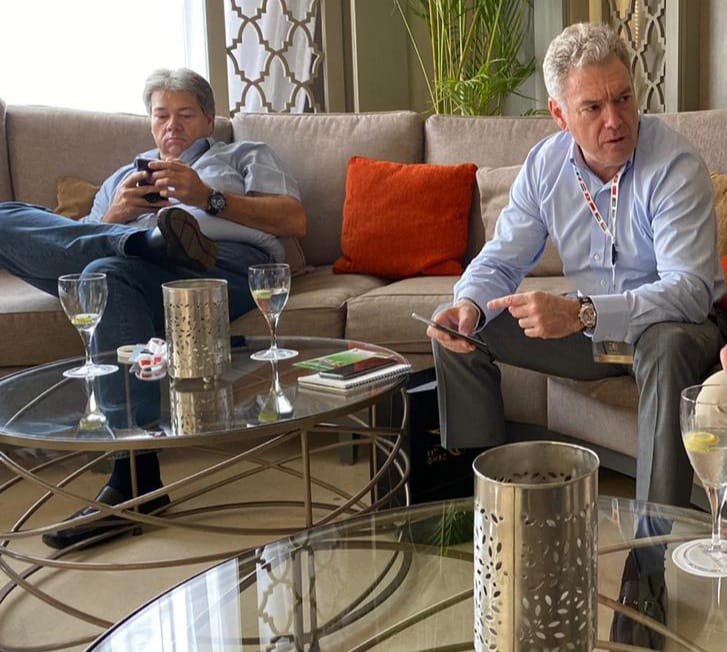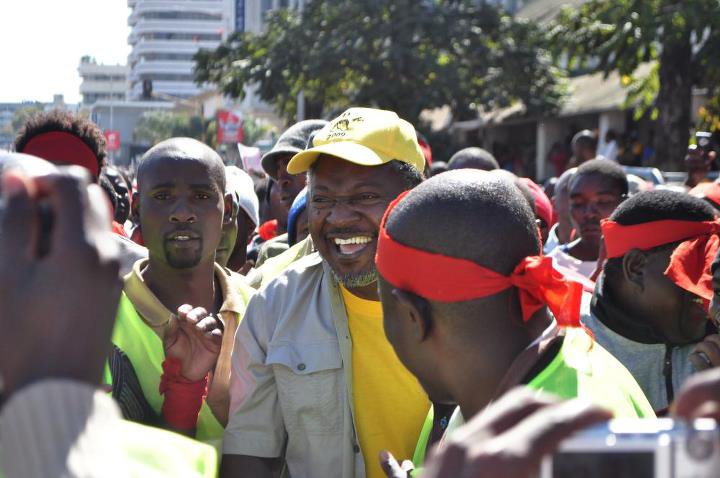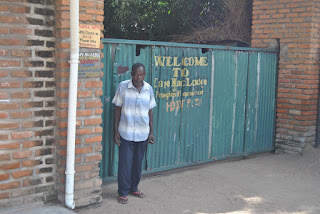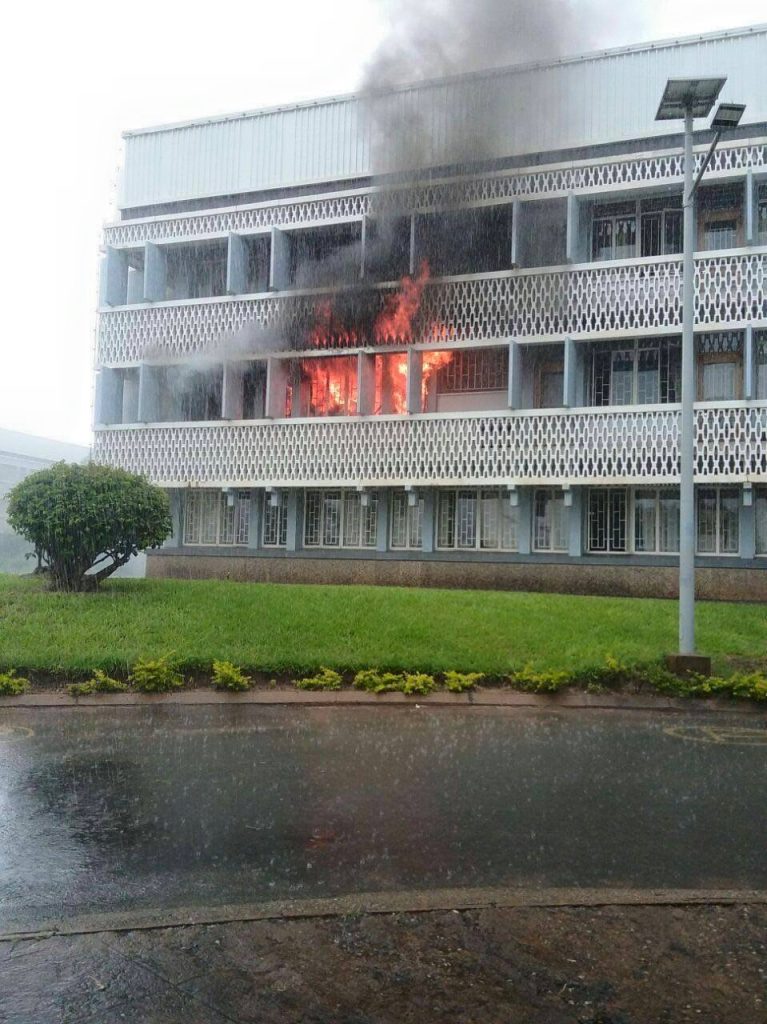BY GOLDEN MATONGA & MERCY CHAGUNDA
Adopting Malawian babies has become a multi-trillion kwacha industry with agents who position themselves as charity organisations conducting online advertising adoption of the Malawian children using emotive images with a promise of a quick adoption process for children who, much like sought-after commodities, don’t come cheap.
Each adoption comes with a price tag of around USD 20 700 (MK21.2m), a year-long investigation by the Platform for Investigative Journalism (PIJ) has revealed.
The PIJ can also reveal that adoptions worth $5.7 billion (MK5.8 trillion) were facilitated between 2006 and 2022. Many more are likely to have taken place and were not reviewed by the PIJ.
While the “quick adoption” process promised by agents is code for a system where government officials are able to by-pass legal issues as they too cash in on innocent children, poor Malawian families who are enticed to give up children for adoption with promises of lucrative payment are not always made aware that they will no longer have any access to their child after adoption.
Adopted children, between the range of two weeks old and 17 years old, are heading mostly to Brazil and then the United States.
Rising Numbers

The Ministry of Children’s Welfare told PIJ it does not have statistics from 2006 due to the loss of records. However, it has compiled a report of child adoption and foster care cases handled between 2017 and 2022 at both district and national levels highlighting the number of adopted children and fostered children, age range, sex of children, type of adoption/foster care, reasons for placement, challenges, and recommendations.
The PIJ independently sourced data from the judiciary indicating adoptions in the main cities of Lilongwe and Blantyre dating back to 2006.
According to the data from the Ministry, between 2017 to December 2022, 97 children were adopted. 58 per cent of the children were girls and 42 per cent were boys, and their ages ranged from 2 weeks old to 17 years old. 29 per cent are aged between 3 – 5 years.
Out of 96 children, 33 were adopted locally, while 63 children were adopted internationally.
Children were adopted by parents from different countries which included Malawi, Brazil, USA, UK, German, France, Netherlands Australia, Romania, and Kenya. 34 per cent of adoptive parents were from Malawi, followed by the USA with 28 per cent, then Brazil with 25 %. Germany, Romania, and France had the least number of adoptive parents with 1 % each.
“From what we have heard from our clients, most of the Brazilians are coming to Malawi to adopt because there is a lot of bureaucracy in Brazil for adoptions. Most of them had heard of a friend who adopted a child in Malawi and decided to follow suit,” a legal officer familiar with adoptions.

41 per cent of children are adopted from the Afriana Foundation. Both Open Arms Infant Home in Blantyre and Missionaries of Charity in Lilongwe had 15 per cent of adopted children each, Crisis Nursery had 11 per cent and Good Samaritan had 8 per cent of children adopted. 3 per cent of children were adopted from Home of Hope while each of the remaining 4 CCIs had 2 per cent of adopted children.
The reasons for adoptions varied, according to files accessed by PIJ. In some cases, “Mother died during childbirth,” “Mother is mentally unsound,” “Mother passed” and “both children are HIV positive. The family did not want to care for them. The mother is a sex worker and refused to care for the child. Etc!
Court records accessed by PIJ show that a total of 288 adoptions took place in Blantyre and Lilongwe between 2006 and 2022 with the numbers rising sharply over the decade.
Adoptions in Malawi gained popularity after US pop star Madonna’s highly publicized adoption of David Banda in 2006, Mercy James in 2009 and twin girls, Stella and Estere in 2017. Malawi also seems to have become the country of choice for adoptions since a crackdown on unethical adoption agencies in other African countries like Uganda and Ethiopia. Uganda cracked down on illegal adoptions in the country after a scandal that made global headlines.
Judges, lawyers, and social welfare officials were arrested and the United States imposed financial sanctions and visa restrictions on two Ugandan judges, a lawyer, and her associate for taking part in a fraudulent adoption scheme where “young children were removed from their families and placed into a corrupt adoption network,” according to a statement from US Secretary of State Mike Pompeo on August 17, 2022.
At the centre of the PIJ’s investigation into adoptions in Malawi are two American charity organizations Children of All Nations (CAN) and Nightlight Christian Adoptions.
Both organisations advertise Malawi adoption programmes online and appear to have connections to orphanages and charities working towards supporting children in Malawi.
The aggressive advertising and allegations of inducements of payments, facilitating contact between parents and families of the children to be adopted have led to fears of lawbreaking, unethical processes and has raised questions of child trafficking…
In some cases, which PIJ reviewed, the High Court stopped the adoptions after noticing unethical conduct and lawbreaking including, in one case, facilitated by a high-profile legal firm.
But sources, including experts and officials working in child rights, suggest that a lot of the adoptions go through after breaking the law without being sanctioned. The social welfare department appears either complicit in the acts or unable to regulate the processes as envisaged by the law.
In a written by a spokesperson, the Ministry of Gender, Community Development and Social Welfare provided an elaborate response to questions sent by PIJ, including sharing available statistics on adoptions available.
The ministry, while saying it was unaware of any unethical adoptions happening in Malawi, said it would investigate PIJ’s findings and said it would be pushing for a review of the Adoption of Children’s Act to ensure any legislative loopholes are sealed.
The Ministry further said any aggressive marketing which would include posting images of children would constitute unethical adoption and lawbreaking.
Selling Children or Call for Charity
On the website of CAN, the calls for adoption also raise ethical questions over the use of the faces of the children and the messaging in the posters. It is unclear whether the consent of parents and families of the children is obtained before publishing the pictures.

Another poster reads “Children in Malawi are waiting”. Another reads: “Will a Malawi orphan be your blessing?”

Another poster with a baby in a baby car seat, reads: “This sweet little boy is waiting for you!”

The organisation also promises “quick adoptions” despite their knowledge that the adoption process in Malawi, which involves courts, is normally a rigorous lengthy process.
“Do you desire to adopt a beautiful child in a quick process? Check CAN process!” reads one advert, spotting two babies with their faces, smiling.
Adoptions, though, appear to be a lucrative industry.
The PIJ estimates in connection to Malawi children are based on records pulled from the Nightlight website show that a single adoption costs $20,700 each.
“Your additional costs will include home study, USCIS approval, notary & apostille fees, airfare, hotel, orphanage donation, and embassy fees as shown on the fee schedule. Your out-of-pocket expenses may further be reduced if you receive scholarships, grants or employer-provided adoption benefits,” reads the website.
The Agency itemizes a breakdown of various payments to be catered for by the payments, including orphanage donation ($3000), birth certificates, lodging, airfare, local transport, food expenses, DNA tests, and medical exam, among others.

One lawyer (name withheld) reportedly charges as much as $7,000 (approximately K7 million) to facilitate a single adoption.
According to the High Court, adoption application process fees are just 10 000 kwacha (approximately $10). The agents charge $600 (around 600 000 kwacha) for a combined total to produce a birth certificate from National Registration Bureau (NRB) which agents charge 2000 kwacha (approximately $2) and a passport which costs 90 000 kwacha (approximately $90).
A private practice lawyer, speaking on condition of anonymity, explained to PIJ how the process works, including the majority of adoptions involving Brazilian couples. The international agents work with local agents to identify children for families in Brazil or the USA and a Brazilian law firm then contacts their local counterparts to facilitate necessary documentation and processes.
“The Ministry of Child Welfare is supposed to get in touch with their counterparts in the corresponding government agency and conduct a home study report. The Ministry of Social Welfare is supposed to do a social welfare report to find out the circumstances around the family giving up the child, whether they understand the implications of adoptions etc,” said the lawyer.
The lawyer, however, argued that the law does not bar prohibit any contact or charitable donations to the families, as the law does recognise a bond between a child and the orphanages.
The Agents
Jason Carney, an American citizen, who wears many hats, is a key player identified in the PIJ investigation. Carney, who refused to respond to questions sent by PIJ, is a co-director at Esther’s House — an orphanage in Lilongwe he runs with his wife Lacey. The couple started their ‘charity’ work in Malawi in 2013.
Native of Northwest Arkansas, he is also the President and founder of 2nd Milk, a charity working in Malawi and other African countries such as Uganda to provide formula and nutrition for babies that are without their first milk from their mother, according to information on the organisation’s website.
Carney has made child welfare his mission and possibly his business, depending on how you view him. For years, he lived in Uganda and worked for Children of All Nations. While in Uganda, he operated an adoption agency, called Africa Adoption Services.
Nightlight, the American agency, says on its website it partners with an organization distributing milk to babies in Malawi. Nightlight’s website read: “Nightlight Christian Adoptions has partnered with a local non-governmental organization (NGO) in Malawi, providing care for abandoned and orphaned children. This organization also provides children with milk and necessary items while educating families on the care of their baby.”
Through 2nd Milk, Carney fundraises money mostly in the United States and provides milk. On the organisation’s website, Carney is quoted saying there are about 400 babies who have benefited from the 2nd Milk program.
“The majority are located in Malawi, but there are also smaller operations in Kenya, Uganda, and Ghana. In February, 2nd Milk crossed the one-million bottle threshold for giving in just three years,” the website quotes Carney saying.
2nd Milk raises its money through appeals to donors with images of poor Malawian children and posts about desperate situations for children in Malawi such as high infant mortality in Malawi used to convince would-be donors to give money to the organisation. “Did you know that malnutrition is responsible for causing over half of all child mortalities in Malawi, Africa? Our mission at 2nd Milk is to greatly reduce that number by providing formula and nutrition to infants 0–2 years of age!” reads one of its messages.
Another reads: “In Malawi, the average woman will bear five to six children, less than half of whom will live past the age of five years. 2nd Milk exists to help fight this epidemic, giving every child a fair chance at life?”
On 12 November this year, during one of 2nd Milk’s fundraising events in the US, Mike Huckabee, the former governor of Arkansas state who twice in 2008 and 2016 vied for the US presidency but failed to clinch the presidential nomination for the Republican Party, was a keynote speaker.
2nd Milk is linked to another organization called Pure Mission, where Carney is a senior leader.

PIJ also saw evidence that Nightlight is working with Africa Adoption Services. We further saw evidence of Carney also working with Africa Adoption Services. Both Carney and Nightlight did not respond to questions from PIJ.

Illegal payments and misinforming families
PIJ saw social media evidence of some adopting parents meeting families of soon-to-be adopted children and giving them incentives, which are outlawed.
One family posted a picture on Instagram carrying the would-be adopted child ahead of a court hearing on the adoption. Their adopting agency remarked on Instagram: “Please pray for our sweet friends, currently in Malawi, adopting their son. Pray for a quick decree and process.”
In another picture, a would-be adopting family is seen meeting a chief in the village of the child ahead of the adoption.
Such meetings, though, are concerning as in some cases it lead to adopting parents enticing poor families with gifts and cash to give up their children when they have some financial challenges, according to Prisca Thawe, an investigating officer for MHRC.
In some attempted adoptions, such contact and financial incentives to families of would-be parents led to judges rejecting adoption applications, according to cases reviewed by PIJ.
In November this year, High Court Judge Fiona Mwale stopped the adoption of a five-year-old boy by a foreign family after it emerged the family, through its lawyers, had made payments to the family at a time some members of the family were against the idea of giving up the child for adoption.
The mother of the child has mental health problems and the father is unknown.
The baby’s uncle and members of the extended family reportedly live in abject poverty. The adopting parent, a 62-year-old husband and 50-year-old wife, identified the baby in 2019 but due to COVID-19 travel restrictions were unable to travel and the process stalled. The child care institution the infant was placed in, decided to reintegrate the infant with his family without seeking the approval of the Department of Social Welfare.
The uncle reached out to the Department of Social Welfare about financial challenges in taking care of the infant due to financial constraints that resuscitated the connection between the infant and the would-be parents, according to court documents.
The law firm sent K100,000.00 for fees and uniforms on behalf of the adopting family and asked the uncle to sign consent forms, but the uncle told the court that the money “was not given as an inducement for me to give consent.”
But Justice Mwale disagreed. She observed that the payments were also made at a time when the family of the child had disagreements on whether to proceed with the adoption or not.
“The fact that counsel went further to facilitate payment from the petitioners to the biological parents knowing that there was a dispute in the family members with regard to consent further puts the Court on High alert as to the existence of improper financial gain, which is frowned up under the normative principles of ADOPTION CAUSE NO. 17 OF 2022 IN RE C.K. MWALE F.A., J 15 international law as well as our own law,” ruled Mwale.
Justice Mwale ordered against contracting or obtaining consent for adoption from the biological families by those seeking to adopt or their lawyers. This, she said, should be done through childcare institutions.
“While they cannot completely avoid contact with biological families, they must not express any views as to prospective adopted parents who have been matched with the infant, as this has the potential of influencing biological families. They must generally refrain from any act that may infringe or be seen as infringing upon the duties of the Department of Social Welfare,” she ruled.
In the same month, the same judge, rejected another application by a 41-year-old foreign national to adopt a child after the family of the baby made a U-turn on consenting to the adoption, telling the court they were not previously given adequate information about the man seeking to adopt the child.
The new information that troubled the family was the fact that the man seeking to adopt the child was an avid bachelor, allegedly, committed to life without marriage.
“I came to court on 9th August 2022 on the matter of adoption. When I learnt that the man seeking to adopt the child is not married, I was not satisfied because the man lives alone and vows never to get married” reads the letter written in vernacular by the uncle of the child to the court.
In other circumstances, officials say families are also misinformed about future access to children.
Pledge of Action
Reacting to the development, the Ministry of Gender, Community Development and Social Welfare said apart from investigating the findings by PIJ, said it would take further steps to address the challenge, including, engaging District Social Welfare Officers and orphanage directors on their role to follow the laid procedures in the adoption process, engage the public in encouraging reporting any acts of “favouritism or corruption”, develop a robust foster care system with more Malawians registered so that the Department of Social Welfare can place children with Malawian families and push for the country to ratify The Hague Convention on Intercountry adoption.
On the money pocketed by the agencies and agents, the Ministry said the law was silent on regulating any payments.
“As regards allegations that these providers are charging huge sums of money to facilitate the adoption process, the Ministry would like to outline the process and suggest circumstances where money may change hands in the process. Suffice to indicate that as far as charging fees are concerned there are no stipulated fees for, social workers, orphanages and parents,” reads part of the response.
On allegations of parents being paid money to provide consent, the Ministry said while it had seen evidence of the practice, said there is a possibility that the practice was happening but described it as “unacceptable and if found the whole adoption process can be cancelled.”
It added: “It is possible that this influence may not be a direct bribe or buy-out, but support rendered to the family over a period of time with purported good intention.”
In one of her rulings, Justice Mwale also called for a law review to address challenges discovered in a number of adoption cases.

